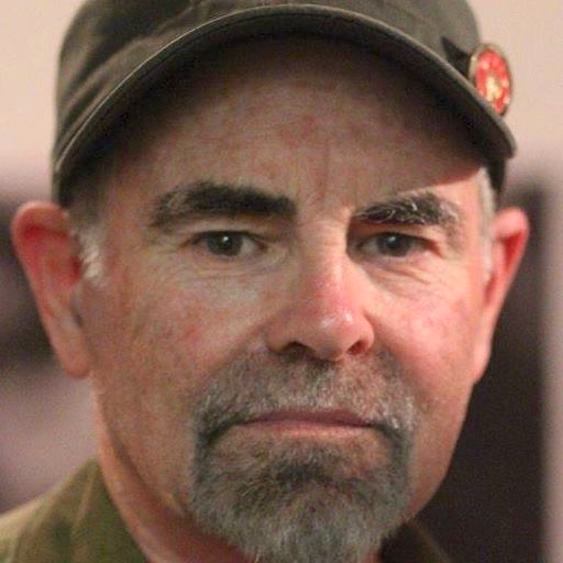
Richard Modiano, a poet, artist, comrade, and native of Los Angeles, who served as Executive Director of Beyond Baroque Literary/Arts Center from 2010 to 2019, is a revered name. He was elected Vice President of the California State Poetry Society in 2019, and The Huffington Post named him as one of 200 people doing the most to promote poetry in the United States. I want to add to this accolade to say that Richard is also one of the very few people who have promoted diversity and inclusivity in the poetry of the United States. Richard produced and curated hundreds of literary events and revolutionized the Los Angeles literary scene with his vision and leadership.
Richard Modiano, a rank and file member of the Industrial Workers of the World continues to make a difference by promoting cultural diversity in art and modern American literature. I have had the honor and privilege to know Richard as a friend and supporter of Life and Legends and Silent River film and Literary Society for a long time. It’s our great pleasure to share that Richard Modiano’s long-awaited collection of poetry and prose, The Forbidden Lunch Box, is here. The book is forthcoming from Punk Hostage Press in August 2022.
My interview with the poet talks about his inspiring life’s journey as an individual, poet, and protagonist of creative justice in literature, art, and society that needs a revolution without any further destruction caused by the conflicts of ideologies, hate, greed, bias, ignorance and more.
KSC: Congratulations on publishing your poetry collection, The Forbidden Lunch Box, forthcoming from Punk Hostage Press. Tell us more about the book we have been waiting for.
RM: The book is a collection of poetry and prose written over the course of several decades. My friend, the poet S.A. Griffin is the editor and he did a terrific job of tightening and sharpening the book.
KSC: You have been active in the literary circle for a long time. Why did you wait to publish your poetry book now?
RM: The publisher Iris Berry invited me to submit a manuscript for consideration, and she accepted it. Otherwise, I have not sought publication outside of journal and magazine submissions.
KSC: Tell us about Richard Modiano we do not know and his life goals.
RM: I was born and raised in the San Fernando Valley and studied at the University of Hawai’i, the University of California Santa Barbara, and New York University. I don’t really have any “life goals” other than to see what happens next.
KSC: Your poem “Los Judíos Sefardíes Regresan” (Sepehardic Jews Return) talks about your ancestory. How did you and your family deal with the bias against the people of your community? In modern times, what are the effective ways to counter propaganda and misinformation spread by lobbies and governments around the world to demonize other communities for monetary and political gain?
RM: The question is what to do when some are hurting and others who have power don’t care? How to make narrow, busy, and self-righteous people understand that other people exist? It was exactly for this problem that Gandhi, A.J. Muste, and Martin Luther King Jr. devised and experimented with the strategy of active non-violent confrontation, both non-violent resistance, and aggressive non-violence. This is the only strategy that addresses all aspects of the situation. It challenges the unconcern. It attacks institutions and confronts people as well. It personalizes the conflict so that habitual and mechanical responses are not easy. It diminishes strangeness. It opens possibilities for the narrow to grow and come across instead of shutting them out. Most importantly, it is the only realistic strategy because it leads to rather than prevents the achievement of a future community among the combatants. We will have to live together in some community or other. How? In what community? We really do not know, but non-violent conflict is the way to discover and invent it.
KSC: How and when did you begin to write poetry?
RM: When I was a high school student, I read a book on spirituality that advised that one keep a daily journal dedicated to examining spiritual questions. Eventually, this journal morphed into a day book for writing impressions that I crafted into poems.
KSC: What inspires you to write?
RM: I write to clarify matters to myself, to keep a record of what is happening in the world and in my imagination.
KSC: What do you try to achieve in your writing?
RM: Clarity and fission.
KSC: Can poetry bring revolution?
RM: Revolutions occur when the material conditions are ripe, and the people are fed up with business as usual. Poetry can articulate the aspirations of the people, but I doubt that it can bring about a revolution.
KSC: How did you come in contact with the Beat poets like Allen Ginsberg, Anne Waldman, Gregory Corso, William S. Burroughs, and Ted Berrigan? Did you share postmodern beliefs?
RM: I met Gregory Corso on the street by chance and struck up a brief conversation with him. Later I met Allen Ginsberg at a poetry reading, and he encouraged me to visit The Poetry Project at St. Marks in the Bowery, where I met Ted Berrigan and Anne Waldman. I also met Burroughs during that same period. None of these writers seem to me be post modern; they are all firmly in the modernist tradition of Imagism, Objectivism, and Beat.
KSC: Did you have the influence of any writer and poet on you? Who are your favorites?
RM: Allen Ginsberg probably had the greatest influence on me in as much as he directed my attention to the US lineage of poetry going back to Whitman and Dickinson. Jack Kerouac was also influential since he pointed the way to Asian poetry, specifically classic Japanese poetry. Later I read the Surrealists and Andre Breton’s manifestos were influential. I have too many favorites to list.
KSC: You studied film at NYU and Anthropology at the University of Hawaii but didn’t choose the fields of your education for your career? Why?
RM: I never thought in terms of having a career, and I undertook my academic studies because the subject matter was interesting to me.
KSC: How did you get involved with the labor movement? How did socialist ideology influence your life?
RM: When I was in the work study program at NYU, I wanted to improve working conditions for myself and fellow workers, and since there was no union for student workers, I joined the Industrial Workers of the World (IWW) with the hope of organizing student workers.
KSC: American society seems to have an undercurrent class conflict. Rich has become richer, and the poor have become poorer. In the 21st century, the divide has become more expansive. Many Americans can’t afford food, housing, health care, and more. And the frustration among middle-lower class people is growing. Do you think America, at some point, will be open to socialism, if not communism?
RM: At some point, the US public will turn to socialism, but not until the socio-economic situation becomes dire.
KSC: Your poem “Wage Slave” gives an insight into your life’s struggle and the struggles of generations in your family. How and why many Americans are deprived of the American Dream that America promises?
RM: Capitalism.
KSC: How do you define life, success, and happiness? Do you have any regrets?
RM: I have no definitions for life, success, or happiness other than to say that all are impermanent.
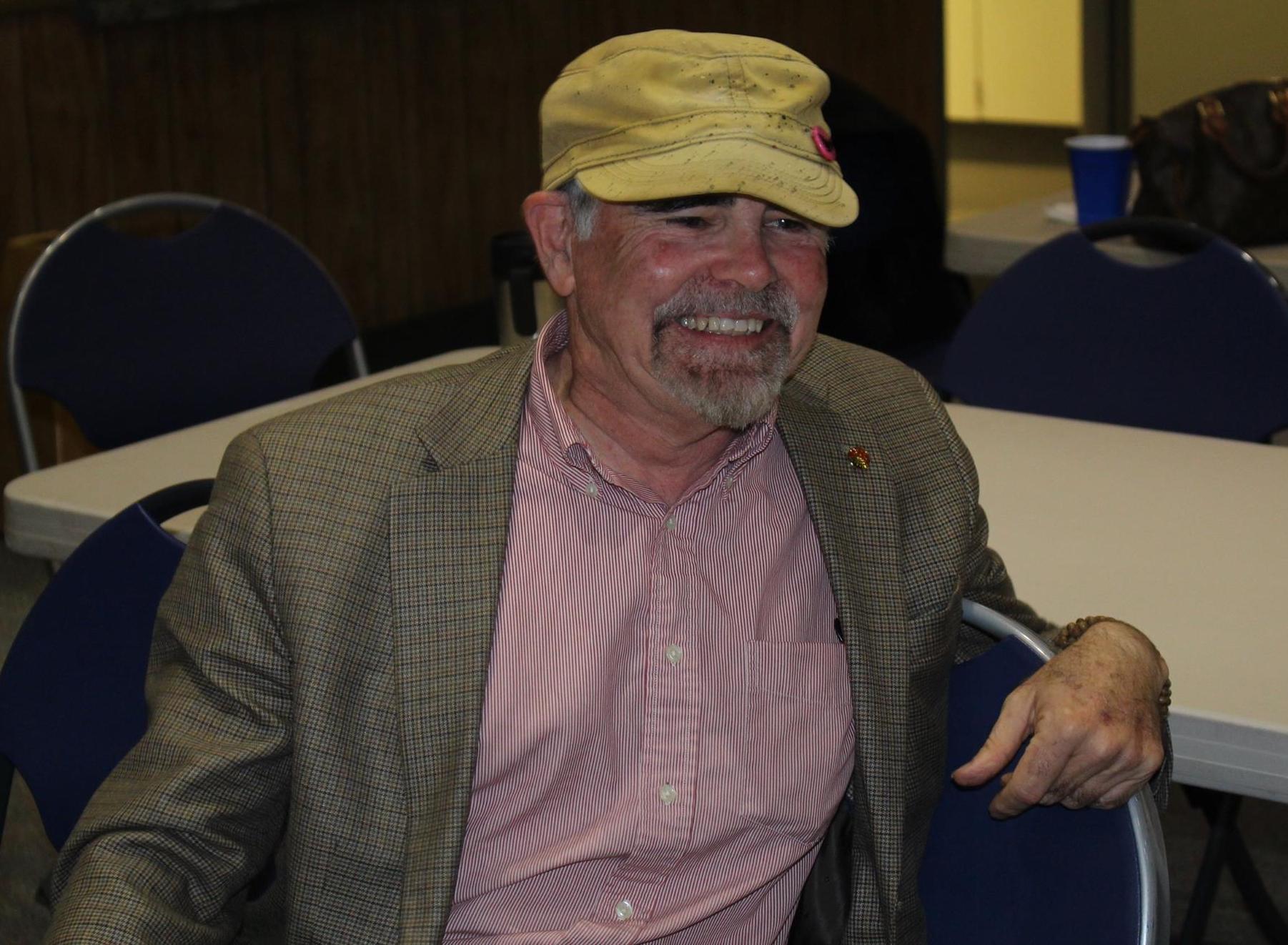
Richard Modiano, enjoying a conversation after reading at Silent River Film and Literary Society in Irvine
KSC: If you have a chance to do things over again, would you like to do things differently?
RM: I would do a few things differently.
KSC: How is cultural diversity influencing modern American literature? Outside academia and beyond the dominance of powerful literary groups, are unique voices being heard?
RM: There are a few unique voices being heard, people like Tongo Eisen-Martin for example.
KSC: What are you writing now?
RM: I write in my journal daily, and I draft poems every day.
KSC: What do you like to do when you are not writing and working?
RM: I like to spend time with friends.
KSC: How do you connect with the rest of the world?
RM: I ride public transportation.
KSC: If you would like to change one thing about the world, what would that be?
RM: I would like to put all fossil fuels back in the ground.
KSC: You have traveled abroad. Tell us about the countries you visited and what you learned from their cultures.
RM: I lived and worked in Spain and Japan, and I have relatives in Mexico. Spain and Mexico are affable, breezy, devil-may-care, laid-back, low-pressure, mellow, and flexible, whereas Japan is exact, fussy, meticulous, painstaking, and punctilious. I value the cultures of all three countries.
KSC: Have you ever been to India? Or did you have any exposure to Indian culture?
RM: At one time in the 1970s, I had plans to go to India, but they fell through. While at the University of Hawai’i, I was friends with Dr. Jagdish Sharma, who introduced me to Dr. Prithwish Neogy, the eminent art historian. Dr. Sharma was a professor of Indian history, and Dr. Neogy taught a class on the traditional arts of India. I learned much from both of them.
KSC: Do you have any advice for new writers?
RM: Keep a notebook and write every day and read as much as possible.
KSC: Do you have words for Life and Legends?
RM: Keep up the good work.
KSC: How would you like the world to remember Richard Modiano?
RM: He tried to do his best.
.
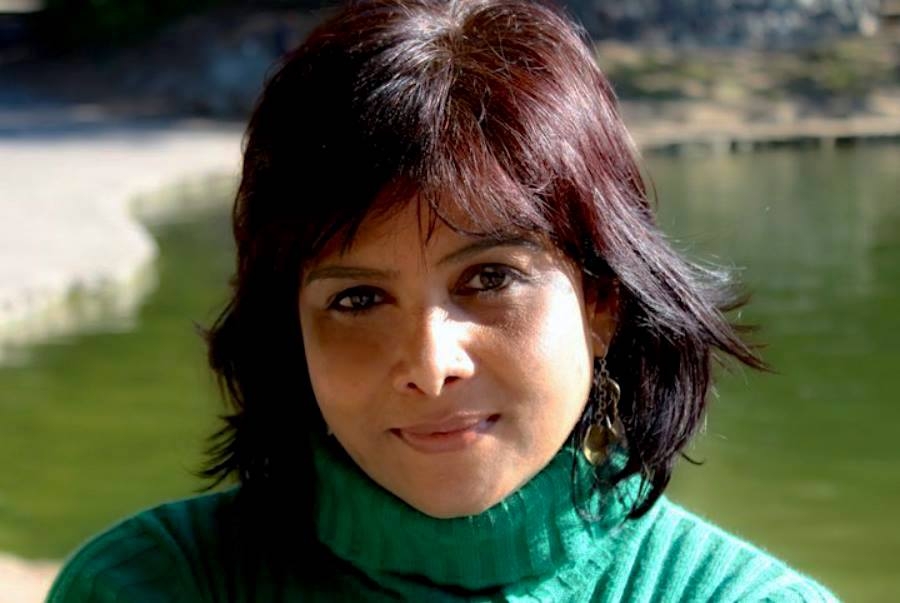
Kalpna Singh-Chitnis is an Indian-American Poet, Filmmaker and Editor-in-Chief of Life and Legends.
Official Website: www.kalpnasinghchitnis.com


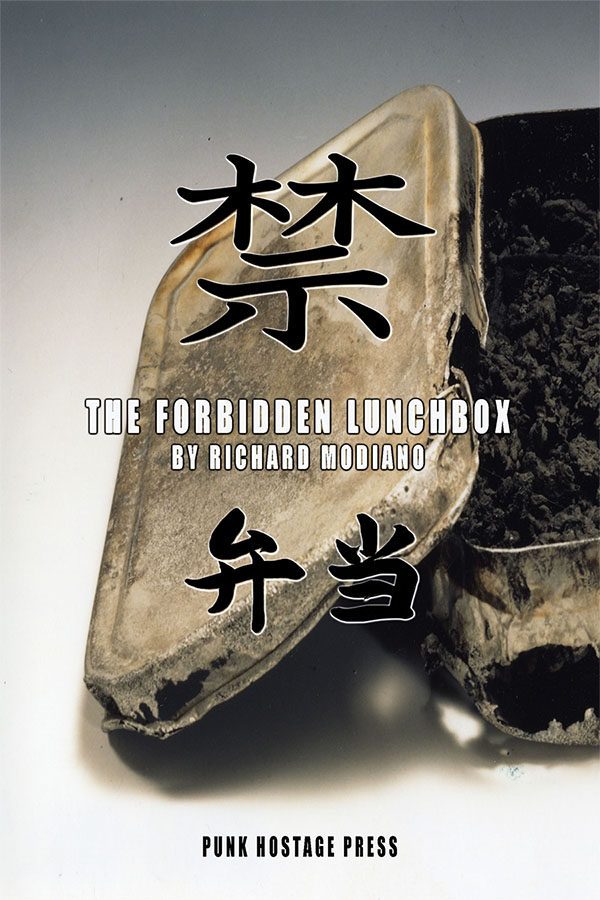
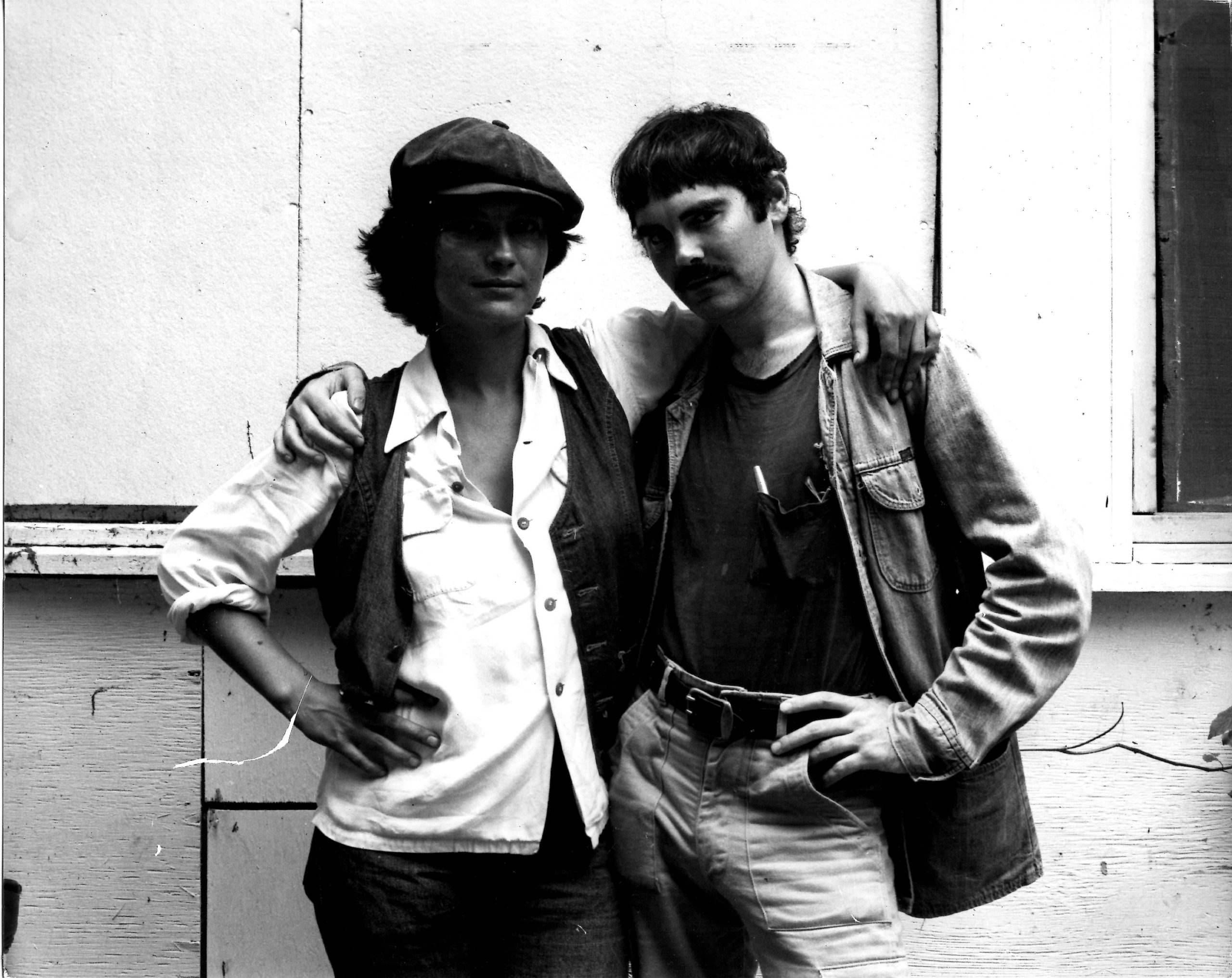
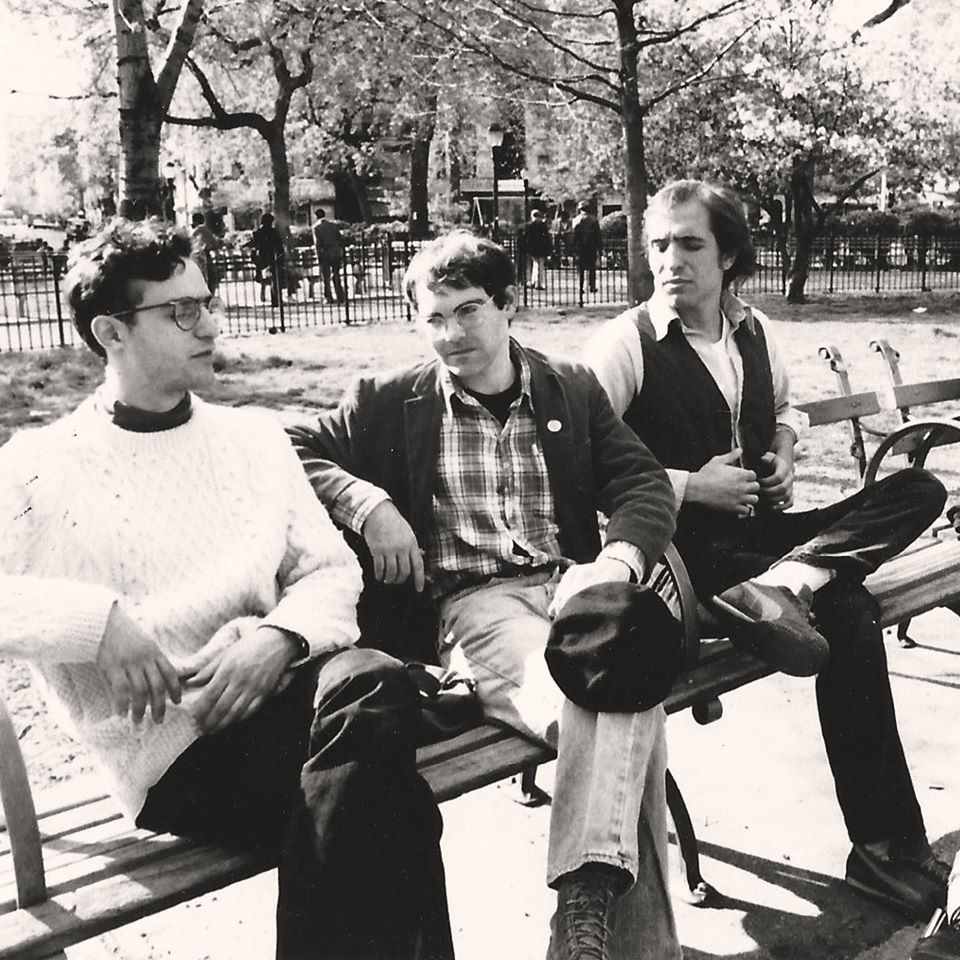
Really enjoyed this interview. I knew Richard while at Beyond Baroque and did not know a lot of this information until I read this interview. Thank you!